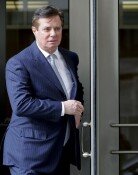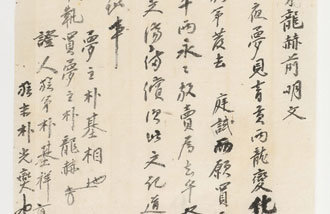Musk and the Robocop Dystopia
Musk and the Robocop Dystopia
Posted January. 09, 2025 07:53,
Updated January. 09, 2025 07:53
In the 1987 Hollywood movie Robocop, the giant tech corporation OCP effectively controls Detroit. Under the guise of combating crime, OCP creates Robocop—a cyborg combining the body of a former police officer with machines—and later develops the military robot ED-209. However, during a demonstration, ED-209 malfunctions and indiscriminately kills citizens. OCP’s singular focus on developing weapons for profit, with little regard for public safety, highlights the potential dangers of unchecked tech corporations that transcend national boundaries.
Is it far-fetched to think of Robocop when observing the recent actions of Elon Musk, the CEO of Tesla and SpaceX, who has emerged as a close associate of U.S. President-elect Donald Trump? Musk has recently sparked controversy over alleged interference in the internal affairs of European countries, prompting concerns in the U.S. about his potential as a security threat.
In the U.K., Musk’s attack on British Prime Minister Keir Starmer has fueled political controversy between the ruling and opposition parties. Musk accused Starmer of failing to investigate child sexual exploitation cases during his tenure at the Crown Prosecution Service and posted on X, stating, "Starmer should resign. It is a national disgrace." Starmer responded, calling the claim “a lie and disinformation that goes too far.” However, the British Conservative Party demanded a full investigation into the exploitation cases. The Times of London reported, “Musk has demonstrated his ability to shape the political climate in the UK. Although Trump has not intervened, his close ties to Musk pose a significant risk.”
In Germany, Europe’s largest economy, Musk has drawn criticism for his public support of the far-right party Alternative for Germany (AfD) ahead of the German general election on February 23. Musk has scheduled a live talk show with AfD co-leader Alice Weidel, the party's candidate for chancellor, and has openly backed the party. On December 20 last year, Musk published an article titled “Only the AfD Can Save Germany” and later supported the party in a German newspaper.
Warnings about Musk’s influence have also emerged in the United States, where concerns about his potential as a security risk have been raised. In a December 31 article in The New York Times, retired U.S. Army Lt. Gen. Russell Honoré wrote, “The White House should not ignore the national security risks just because Musk donated a large sum to Trump’s reelection.” Honoré highlighted Musk’s pro-China stance, including his suggestion that Taiwan should become a special administrative region of China, while noting that Tesla’s Shanghai factory accounts for nearly half of the company’s global production.
The international attention on Musk stems from his considerable influence in the global tech industry and U.S. politics, which is amplified by Trump’s unwavering support.
Norwegian Prime Minister Jonas Gahr Støre remarked in a broadcast interview on Monday, “I am concerned that someone with massive access to social media and significant economic resources is directly interfering with the internal affairs of other countries.”
As Musk’s influence grows, so does his business empire. SpaceX’s Starlink, a satellite internet service, now serves 4 million people across more than 100 countries, dominating the low-orbit satellite communication market. SpaceX has also developed satellite services for both civilian and military use. The parallels between Musk’s expanding influence and the dystopian vision portrayed in Robocop are unsettling. One can only hope that a future where a tech giant such as OCP reigns supreme remains confined to fiction.







